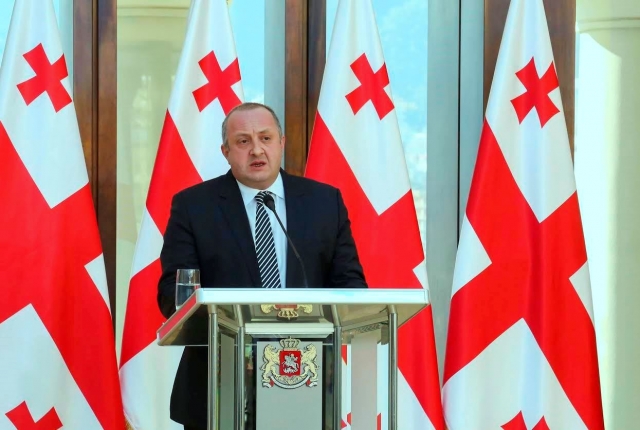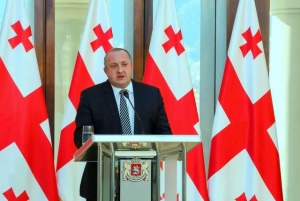President of Georgia Vetoes Bill on Judicial Reform
TBILISI – President of Georgia Giorgi Margvelashvili has vetoed a bill on the so-called third wave of judicial reform, passed by the parliament and sent to the president for signature on January 10.
The president believes that the legislative package includes some provisions that contradict the principles of judicial independence and impartiality of judges.
"Considering the importance of this legislative package, and in general, the judicial reform, I have made a decision to exercise my constitutional power and propose motivated remarks to the parliament,” the president said.
Margvelashvili offered six recommendations to the parliament in order to improve legislation. They are:
1. Court chairs should be elected by the judges and they should not be elected by the High Court of Justice.
2. One and the same person should not be a chairperson of the court and chamber at the same time.
- Judges should have the opportunity to be represented in the High Council of Justice (HCJ) as the court chairs will no longer be able to be members of the council.
- Rules about collecting and spreading information on each candidate in the process of selecting judges should be specified.
- A judge should not undergo a three-year probation period before being appointed the position.
- The number of supreme court judges should be defined by law.
Margvelashvili expressed hope that the parliament will take into account both the president's remarks and the recommendations of the Venice Commission, which visited Georgia several days ago.
Despite his veto, Margvelashvili praised some aspects of the bill, especially those mandating an electronic case distribution system for introduction from 2018.
Eka Beselia, a member of the ruling Georgian Dream (GD) party and chair of parliament's Legal Affairs Committee, said that the president’s decision was “strange and unclear.”
“The Georgian juridical system, civil society and our European and Western partners have been waiting for this reform for a long time. The president's veto will further hinder the process,” she said.
Ana Dolidze, the President’s Parliamentary Secretary, responded to Beselia by saying that the legislative body had long been aware of the president's position on the relevant aspects of the bill.
“The president’s remarks should not have been a surprise. The recommendations share the position of the Venice Commission,” Dolidze said.
The parliament has fifteen days to discuss the president’s recommendations. If lawmakers approve of all of the recommendations, the revised package will be sent to the President for his signature. If the MPs disapprove the president’s remarks, the initial version of the bill will be voted on again in parliament.
by Thea Morrison












